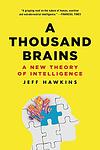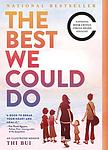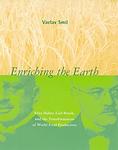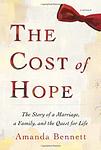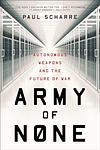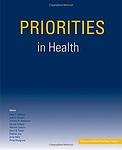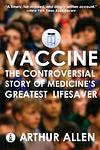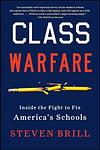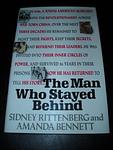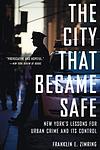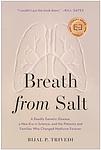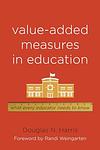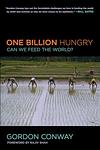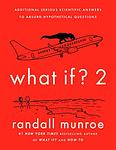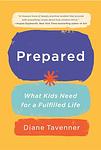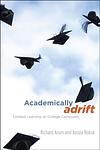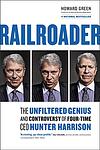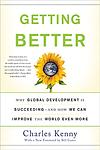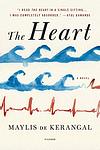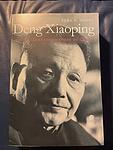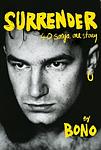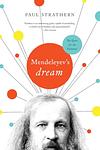Bill Gate's Book Recommendations
This is one of the 305 lists we use to generate our main The Greatest Books list.
-
The New Science Of Strong Materials by J.E. Gordon
This book demystifies the complex world of materials science for the lay reader, exploring the fundamental principles that determine the strength and durability of materials. Through engaging anecdotes and accessible explanations, it delves into why materials behave the way they do and how understanding these behaviors has led to groundbreaking innovations in various fields. Covering topics from the basic structure of materials to the intricate ways in which they fail, the book illuminates the critical role that materials science plays in technological advancements and everyday life, making a compelling case for the importance of this often-overlooked field.
The 5739th Greatest Book of All Time -
Poor Economics by Abhijit V. Banerjee, Esther Duflo
This book delves into the complex world of poverty, challenging conventional wisdom and assumptions about the economic decisions of the poor. Through rigorous analysis and empirical evidence, the authors explore how the poor make choices regarding education, health care, savings, and investments, revealing the logic behind these decisions. They argue that understanding these choices is crucial for designing effective anti-poverty policies. The book advocates for a more nuanced, bottom-up approach to economics, emphasizing the importance of specific, targeted interventions over broad, one-size-fits-all solutions. By combining detailed field research with economic theory, it provides insightful perspectives on how to empower the world's impoverished populations.
The 9296th Greatest Book of All Time -
A Thousand Brains: A New Theory Of Intelligence by Jeff Hawkins
This book introduces a groundbreaking theory of intelligence, proposing a novel understanding of how the brain works. It challenges traditional models by suggesting that the brain operates not through a single engine of reasoning but through a network of many tiny brains working in parallel. Each of these "brains" is a specialized unit responsible for understanding the world through a specific lens. The author, a renowned figure in the field of neuroscience and artificial intelligence, combines the latest scientific research with accessible explanations to explore how this theory could not only revolutionize our understanding of human intelligence but also pave the way for more advanced and empathetic artificial intelligence systems. Through this lens, the book delves into the implications for how we learn, how we make decisions, and how we perceive the world around us.
The 10268th Greatest Book of All Time -
The Best We Could Do: An Illustrated Memoir by Thi Bui
This illustrated memoir captures the story of a Vietnamese family who fled to America after the fall of South Vietnam in the 1970s. The narrative traces their journey and struggles as refugees, while also delving into the family's complex history and relationships. The author uses her own experiences as a new mother to explore themes of parenthood, identity, and the enduring effects of displacement and trauma.
The 6065th Greatest Book of All Time -
Identity by Francis Fukuyama
In "Identity," the author delves into the complex and increasingly relevant issue of how the demand for recognition of one's identity has become a pivotal force in global politics. The book explores the concept of identity politics, tracing its origins from the philosophical ideas of the Enlightenment to its contemporary manifestations, which are often marked by divisive and polarizing debates. The author argues that the modern world's emphasis on individual rights and the recognition of diverse identities can both enrich societies and lead to conflicts. Through a detailed examination of historical and current events, the book offers insights into how identity politics impacts democracy and global stability, suggesting ways to acknowledge diverse identities while fostering unity and cooperation.
The 9962nd Greatest Book of All Time -
Enriching The Earth by Vaclav Smil
This book provides a comprehensive exploration of the pivotal role that the Haber-Bosch process has played in transforming agriculture and supporting global population growth. By synthesizing ammonia from nitrogen and hydrogen, this technological innovation enabled the mass production of fertilizers, significantly boosting crop yields and thus, food supply. The narrative delves into the scientific, historical, and environmental aspects of this revolution, examining both its monumental contributions to human society and the challenges it poses, including resource depletion and environmental degradation. Through a detailed analysis, the work underscores the delicate balance between technological advancement and sustainable development.
The 8230th Greatest Book of All Time -
The Choice by Dr. Edith Eva Eger
This book is a powerful memoir and psychological exploration by a Holocaust survivor who became a renowned therapist. It delves into the harrowing experiences of the author's youth in Auschwitz, her struggles and triumphs in the aftermath of World War II, and her journey towards healing and forgiveness. Through her personal narrative, the author offers profound insights into the human capacity for resilience, the importance of choice in the face of suffering, and the transformative power of freeing oneself from the prisons of the mind. Her story is a testament to the strength of the human spirit and the ability to find hope and meaning in life's darkest moments.
The 6881st Greatest Book of All Time -
The Magic Of Reality by Richard Dawkins
This book is a fascinating exploration of the natural world, blending scientific rigor with the sheer wonder of discovery. It aims to demystify the universe by explaining phenomena that have long been shrouded in myth and superstition through the lens of science and reason. By examining a series of questions that have intrigued humans for centuries, the book systematically debunks myths and legends by presenting the scientific facts in a way that is accessible and engaging. Through this approach, it celebrates the beauty and complexity of the world, encouraging curiosity and a deeper understanding of reality as revealed through science.
The 9296th Greatest Book of All Time -
Broken Genius by Joel N. Shurkin
This book provides a comprehensive biography of William B. Shockley, a brilliant physicist who won the Nobel Prize for his role in inventing the transistor, a foundational component for modern electronics. However, Shockley's later life was marred by controversy due to his public endorsement of eugenics and his belief in racial differences in intelligence. These views led to his professional and social isolation. The narrative delves into the complexities of Shockley's character, exploring how a man of such intellectual prowess could also embrace deeply flawed and divisive ideas. It presents a nuanced portrait of a figure whose contributions to science are undeniable, yet whose legacy is irreversibly tainted by his contentious opinions.
The 10135th Greatest Book of All Time -
The Cost Of Hope by Amanda Bennett
This book is a poignant memoir that delves into the emotional and financial journey of a woman and her husband as they navigate through his battle with kidney cancer. It's a deeply personal exploration of the healthcare system, the complexities of treatment options, and the impact of these decisions on their family's life and finances. The narrative weaves together a love story with a critical look at the costs—both literal and metaphorical—of pursuing hope in the face of terminal illness. Through her story, the author sheds light on the broader implications of medical decision-making and the healthcare industry, prompting readers to consider the true value of hope and the lengths to which one would go to fight for a loved one's life.
The 9384th Greatest Book of All Time -
A World Class Education by Vivien Stewart
This book provides a comprehensive analysis of the education systems of top-performing countries and distills key strategies and practices that contribute to their success. It explores how nations such as Finland, Singapore, and Canada have achieved world-class educational outcomes by focusing on teacher quality, a rigorous curriculum, and a culture of high expectations. The author argues that for the United States to remain competitive in the global economy, it must learn from these countries and implement similar policies and practices. The book serves as a call to action for educators, policymakers, and stakeholders to transform the American education system by adopting a more global perspective on learning and teaching.
The 9384th Greatest Book of All Time -
Army Of None by Paul Scharre
This book delves into the rapidly evolving world of autonomous weapons and the future of warfare, where machines are increasingly taking over decisions once made by humans. It explores the complex ethical, legal, and strategic challenges posed by unmanned systems on the battlefield, from drones to AI-driven robots. The author, a veteran and expert in defense policy, navigates through the technological advancements, potential benefits, and alarming risks associated with these weapons. He raises critical questions about accountability, the morality of machine decision-making in life-and-death situations, and the potential for new types of conflict, urging for a thoughtful approach to the development and deployment of autonomous weapons systems.
The 9962nd Greatest Book of All Time -
Work Hard. Be Nice. by Jay Mathews
This book provides an inspiring look into the creation and evolution of the Knowledge Is Power Program (KIPP), one of the most successful charter school networks in the United States. It chronicles the journey of two young teachers, Dave Levin and Mike Feinberg, who, driven by their passion for teaching and belief in the potential of every child, set out to make a difference in the lives of students in underserved communities. Through their relentless efforts, innovative teaching methods, and the mantra of "Work Hard. Be Nice.," they transformed the educational landscape for thousands of children, demonstrating that with high expectations, resilience, and a supportive learning environment, all students can achieve excellence.
The 9112th Greatest Book of All Time -
Priorities In Health by Dean T. Jamison
This book delves into the critical analysis of health priorities, offering a comprehensive overview of how health systems can effectively allocate resources to maximize health outcomes. It explores various methodologies and tools for assessing health needs, setting priorities, and implementing health interventions in diverse settings. Drawing on extensive research and case studies, the text provides insights into the economic, ethical, and practical considerations involved in making informed decisions about health care priorities. It serves as a valuable resource for policymakers, health professionals, and researchers seeking to improve health service delivery and address the pressing challenges of global health disparities.
The 8644th Greatest Book of All Time -
House On Fire by William H. Foege
This book provides a compelling narrative on the global fight to eradicate smallpox, one of the deadliest diseases in human history. Through the lens of public health, it details the strategic and collaborative efforts led by an extraordinary group of individuals who took on the daunting task of eliminating the virus. The author, a key figure in this historic endeavor, shares personal insights and experiences, highlighting the importance of vaccination, international cooperation, and the power of science and compassion in overcoming global health challenges. The book serves as both a testament to a monumental achievement in public health and a blueprint for addressing future pandemics.
The 9296th Greatest Book of All Time -
The Bet by Paul Sabin
This book delves into the high-stakes wager between two influential figures, an economist and a biologist, who held opposing views on the future of global resources and population growth. Set against the backdrop of the latter half of the 20th century, the narrative explores the broader debate on environmental policy, economic growth, and the limits of Earth's resources. Through the lens of this famous bet, the author examines the impact of their clash on public discourse and policy, highlighting the complexities of predicting the planet's environmental future. It serves as a fascinating case study on how scientific debates can influence political and public opinion, and the challenges of balancing resource sustainability with human progress.
The 9504th Greatest Book of All Time -
Vaccine by Arthur Allen
This book provides a comprehensive history of vaccines, tracing their development from the earliest days of smallpox inoculation to the modern era of genetic engineering and pandemic preparedness. It delves into the scientific breakthroughs, the battles against various diseases, and the controversies that have surrounded vaccination efforts over the years. The narrative also highlights the roles of key figures in the field of immunology and public health, and examines the ethical, political, and social challenges that have accompanied vaccine development and deployment. Through a detailed exploration of past successes and failures, the book underscores the critical role of vaccines in advancing public health and the ongoing need for innovation and vigilance in the fight against infectious diseases.
The 8955th Greatest Book of All Time -
Class Warfare by Steven Brill
This book delves into the complex and contentious world of education reform in the United States, offering an in-depth exploration of the battles over public education. Through meticulous reporting, it presents a comprehensive look at the key players, policies, and politics that have shaped the debate over how best to educate America's children. The narrative focuses on the efforts to improve failing schools, the rise of charter schools, the impact of teachers' unions, and the role of wealthy philanthropists. By weaving together the stories of reformers, educators, and students, the book provides a critical examination of the challenges and controversies that have defined the struggle to overhaul America's educational system.
The 9296th Greatest Book of All Time -
The Path Between The Seas by David McCullough
This book provides a comprehensive history of the monumental engineering feat that is the Panama Canal, spanning from its inception to completion. It delves into the political, medical, and technological challenges faced by those who embarked on the ambitious project to connect the Atlantic and Pacific Oceans. The narrative not only captures the human drama of ambition, suffering, and triumph but also highlights the significant impact of the canal on global trade and the geopolitical landscape of the 20th century. Through meticulous research and engaging storytelling, the author brings to life the extraordinary efforts and innovations that overcame the daunting obstacles of nature and human endeavor.
The 6069th Greatest Book of All Time -
The Quest by Daniel Yergin
This book is a comprehensive exploration of the global energy sector, tracing its historical developments, current challenges, and future prospects. It delves into the intricacies of energy production, from traditional fossil fuels to renewable sources, and examines the geopolitical tensions, environmental concerns, and technological innovations shaping the industry. The narrative provides a deep understanding of how energy security, economic growth, and climate change are interconnected, offering insights into the complex decisions facing policymakers, industry leaders, and consumers in the quest for sustainable energy solutions. Through detailed analysis and engaging storytelling, the book highlights the critical role of energy in the modern world and the ongoing efforts to meet the demands of a growing global population while addressing the urgent need for environmental stewardship.
The 9296th Greatest Book of All Time -
The Man Who Stayed Behind by Sidney Rittenberg
This book is the remarkable memoir of an American who became deeply involved in the Chinese Communist movement from the 1940s through the 1970s. Initially arriving in China as a U.S. Army interpreter during World War II, he chose to stay in the country after the war ended, drawn by the promise of the Communist Revolution. Over the years, he became a close associate of key revolutionary leaders, including Mao Zedong, and played a significant role in the Communist Party's propaganda efforts. Despite his deep commitment to the cause, he faced suspicion and was imprisoned twice for a total of 16 years on charges of espionage. The narrative provides a unique insider's perspective on the Chinese Communist Revolution, the Cultural Revolution, and the complexities of being a foreigner deeply embedded in one of the most significant political movements of the 20th century.
The 6976th Greatest Book of All Time -
In Fed We Trust by David Wessel
This book provides an insightful analysis of the Federal Reserve's response to the 2008 financial crisis, highlighting the central bank's pivotal role in preventing a complete economic collapse. Through a detailed account, it explores the decisions and actions taken by the Fed under the leadership of Ben Bernanke, including unconventional measures such as bailouts and quantitative easing. The narrative not only sheds light on the complexities and challenges faced by the Federal Reserve during one of the most turbulent periods in modern financial history but also sparks a discussion on the implications of its actions for democracy, the economy, and the future of financial regulation.
The 9112th Greatest Book of All Time -
The City That Became Safe by Franklin E. Zimring
This book offers a comprehensive analysis of the dramatic decline in crime rates in New York City over the past two decades, challenging conventional wisdom and simplistic explanations. It meticulously examines the strategies and policies implemented by law enforcement and city officials, attributing the sustained drop in crime to a combination of innovative policing tactics, demographic shifts, and socio-economic changes. Through a detailed exploration of statistical data and crime trends, the author provides a nuanced understanding of how one of the world's largest cities transformed into a model of urban safety, offering valuable lessons for policymakers and cities worldwide.
The 9296th Greatest Book of All Time -
The End Of Poverty by Jeffrey D. Sachs
This book presents a compelling argument that extreme poverty, defined as living on less than $1 a day, can be eradicated globally by the year 2025 through targeted interventions and international cooperation. The author, an esteemed economist, draws on his extensive experience advising governments in Latin America, Eastern Europe, and Africa to outline a practical plan for achieving this goal. He emphasizes the importance of addressing the "poverty trap" that many developing countries find themselves in, where low income leads to insufficient investment in basic needs such as health, education, and infrastructure, which in turn keeps these nations in a cycle of poverty. The book advocates for a combination of increased aid, debt relief, and investment in technology and infrastructure, tailored to the specific needs of impoverished regions, to empower these communities to achieve sustainable economic growth.
The 8565th Greatest Book of All Time -
Breath From Salt by Bijal P. Trivedi
This book provides a comprehensive exploration of the scientific journey and the relentless pursuit of a cure for cystic fibrosis, a devastating genetic disease. It chronicles the groundbreaking collaboration between patients, scientists, and philanthropists, which led to revolutionary treatments that transformed cystic fibrosis from a fatal childhood disease to a manageable condition. Through compelling narratives, the book highlights the innovative use of genetic research, personalized medicine, and the power of community activism, offering hope and a blueprint for tackling other genetic diseases.
The 10135th Greatest Book of All Time -
Smallpox by D.A. Henderson
This book provides a comprehensive overview of the smallpox disease, from its historical impact on human societies to the monumental global effort led to its eradication. The narrative delves into the biological and epidemiological characteristics of the virus, the development of the smallpox vaccine, and the strategic challenges faced during the eradication campaign. It highlights the pivotal role of international collaboration and the relentless work of healthcare professionals and volunteers. Through a blend of scientific detail and engaging storytelling, the book celebrates one of the greatest achievements in public health, offering insights into the complexities and triumphs of disease control and eradication.
The 9112th Greatest Book of All Time -
Why America Is Not A New Rome by Vaclav Smil
This book presents a detailed comparison between the United States and ancient Rome, debunking the popular notion that America is following the same trajectory as the Roman Empire towards decline and fall. The author meticulously examines various dimensions including military power, political systems, social structures, and economic dynamics to highlight the fundamental differences between the two entities. Through a rigorous analysis, it is argued that simplistic analogies between Rome and the United States overlook significant dissimilarities, particularly in terms of resilience, adaptability, and global influence, ultimately making the case that America's path is distinct from that of ancient Rome.
The 9212th Greatest Book of All Time -
Stretching The School Dollar by Frederick M. Hess
This book delves into the critical issue of educational finance, offering innovative strategies for maximizing the effectiveness of school spending in the face of tightening budgets. It challenges traditional approaches to funding and managing schools, advocating for a more efficient use of resources to enhance student learning. Through a collection of essays by leading experts, the book explores various aspects of educational finance, including teacher compensation, technology investments, and the allocation of resources to special education. It serves as a guide for policymakers, administrators, and educators seeking to navigate the complexities of school finance while ensuring that every dollar spent contributes to positive educational outcomes.
The 9212th Greatest Book of All Time -
Perception And Misperception In International Politics by Robert Jervis
This book delves into the complexities of international relations by examining how states perceive and often misinterpret each other's actions due to psychological biases and informational constraints. The author argues that these misperceptions can lead to conflicts and misunderstandings, significantly impacting global politics. By integrating insights from psychology with detailed case studies, the work provides a comprehensive framework for understanding the role of perception in international relations, offering strategies for reducing misperceptions and fostering more effective communication between states. Through its exploration of the cognitive processes influencing political decision-making, the book highlights the importance of perception management in diplomacy and international strategy.
The 5869th Greatest Book of All Time -
Value Added Measures In Education by Douglas N. Harris
This book provides an in-depth examination of value-added measures (VAM), a method used to evaluate the effectiveness of schools and teachers by looking at the academic progress of students over time. The author critically analyzes the potential and limitations of VAM, discussing its implications for policy, practice, and the future of educational assessment. Through a comprehensive review of research and data, the book explores how value-added modeling can impact teacher accountability, school improvement, and student outcomes, while also addressing the controversies and challenges associated with its implementation in the educational system.
The 9296th Greatest Book of All Time -
The Headspace Guide To Meditation And Mindfulness by Andy Puddicombe
This book serves as a comprehensive introduction to the practices of meditation and mindfulness, aimed at beginners and seasoned practitioners alike. Written by a former Buddhist monk with a talent for demystifying Eastern practices for Western audiences, it offers practical advice, personal anecdotes, and simple exercises designed to integrate mindfulness into everyday life. The author emphasizes the importance of dedicating just ten minutes a day to meditation, arguing that this small commitment can lead to significant improvements in stress levels, focus, and overall happiness. The guide is both an instructional manual and a persuasive argument for making mindfulness a permanent part of one's life.
The 9296th Greatest Book of All Time -
One Billion Hungry by Gordon Conway
This book provides a comprehensive examination of the global hunger crisis, emphasizing the urgent need for sustainable solutions to feed a rapidly growing world population, projected to reach nine billion by 2050. It delves into the complexities of food security, exploring innovative approaches to increase agricultural productivity, enhance nutritional value, and ensure equitable access to food. The author, an expert in sustainable agriculture, argues for a multifaceted strategy that combines advancements in science and technology with policy reforms and community engagement. By presenting a blend of case studies, research findings, and personal insights, the book aims to inspire action and optimism in addressing one of the most critical challenges of our time: ensuring that a billion people currently facing hunger have access to sufficient, nutritious food.
The 9384th Greatest Book of All Time -
The Idealist by Nina Munk
This book provides a deep dive into the ambitious quest of a well-known economist to eliminate poverty in Africa through the implementation of "Millennium Villages." The narrative follows the economist's journey, highlighting both the inspirational vision and the challenging realities of trying to transform the lives of the poor on a grand scale. Through on-the-ground reporting, the author critically examines the project's outcomes, successes, and significant setbacks, offering a nuanced exploration of the complexities involved in international development and the limits of good intentions. The story is a compelling account of passion, innovation, and the hard lessons learned when idealism confronts the harsh truths of practical implementation.
The 9504th Greatest Book of All Time -
Upheaval by Jared Diamond
This book delves into how nations cope with crises and the factors that determine their success or failure in overcoming them. By examining several countries' responses to profound upheavals, the author identifies a set of common challenges and solutions that can guide societies facing similar issues. Drawing parallels between personal psychological coping mechanisms and the ways countries navigate crises, the book offers a unique perspective on resilience, adaptation, and the critical choices that shape the destinies of nations. Through detailed case studies, it explores the complex interplay between national identity, societal flexibility, and the capacity for self-assessment, ultimately providing insights into the processes that enable societies to survive and thrive in the face of adversity.
The 10053rd Greatest Book of All Time -
Dad Is Fat by Jim Gaffigan
In this humorous and insightful book, the author shares his experiences of fatherhood, navigating the chaos and joys of raising five children in a two-bedroom New York City apartment. With a blend of self-deprecating humor and genuine affection, he explores the trials, tribulations, and triumphs of parenting, from sleep deprivation and holiday traditions to the challenges of feeding picky eaters and the quest for a moment of peace. Through a series of laugh-out-loud essays, the book offers a candid and relatable look at family life, capturing the love, frustration, and hilarity that comes with being a parent.
The 9504th Greatest Book of All Time -
How To by Randall Munroe
This book is a unique take on the conventional how-to guide, blending humor with scientific curiosity to explore absurd and impractical ways to accomplish everyday tasks. The author, a former NASA roboticist with a penchant for the whimsical, uses detailed research and complex scientific principles to answer outlandish questions, such as how to move a house with helium balloons or how to throw a pool party on the surface of the moon. Through entertaining and often elaborate explanations, the book encourages readers to look at the world through a different lens, celebrating the joy of discovery and the fun of taking things to their logical yet ridiculous extremes.
The 8523rd Greatest Book of All Time -
Capitalism Without Capital by Jonathan Haskel
This book delves into the modern economic shift towards an intangible asset-driven economy, distinguishing it from traditional, tangible asset-based systems. It explores how investments in intangible assets like design, branding, R&D, and software are overtaking physical assets in importance, fundamentally altering the landscape of business and economy. The authors analyze the unique challenges and opportunities this shift presents, including issues of economic measurement, policy-making, and the distribution of wealth. Through a comprehensive examination, the book provides insights into how the rise of intangible assets is reshaping capitalism, influencing everything from how companies operate to how economies are managed and grow.
The 9804th Greatest Book of All Time -
Sustainable Energy by David J.C. Mackay
This book offers a comprehensive exploration of the potential for sustainable energy sources to replace fossil fuels, addressing the technical, practical, and environmental challenges involved. The author meticulously quantifies the capabilities of various renewable energy sources, such as wind, solar, and bioenergy, in meeting the world's energy demands in a sustainable manner. Through clear, accessible analysis, the book dispels myths surrounding renewable energy and emphasizes the importance of a balanced approach that includes energy conservation, efficiency, and the development of a diverse mix of renewable energy sources to achieve a sustainable energy future.
The 9047th Greatest Book of All Time -
Why Does College Cost So Much? by Robert B. Archibald
This book delves into the intricate reasons behind the soaring costs of higher education, challenging common misconceptions and simplistic explanations. It presents a nuanced analysis that considers a range of factors, including the nature of the services provided by colleges, the impact of technology, and broader economic trends. By examining the historical context and the unique economic characteristics of higher education, the authors provide a comprehensive understanding of why college tuition has risen at a rate that outpaces inflation and what this means for future generations seeking education. Through their exploration, they aim to shed light on the complex dynamics at play and stimulate informed discussions on how to address this pressing issue.
The 9212th Greatest Book of All Time -
Prepared by Diane Tavenner
This book offers a transformative approach to education, focusing on preparing students for the real world rather than just academic success. The author, drawing from her extensive experience in education, outlines a model that emphasizes life skills, critical thinking, and emotional intelligence alongside traditional learning. Through personal anecdotes, research, and practical advice, the book advocates for a system that equips students to handle the challenges of adulthood, pursue their passions, and achieve personal and professional fulfillment. It serves as a guide for parents, educators, and policymakers on how to support children in becoming independent, capable, and compassionate individuals.
The 10053rd Greatest Book of All Time -
Presidents Of War by Michael Beschloss
This book provides a comprehensive examination of American presidents who have led the nation through times of war, from the early 19th century to the modern era. It delves into the complexities of presidential power, exploring how these leaders managed the immense responsibilities of wartime command, navigated the politics of war, and made decisions that shaped the course of American history. Through meticulous research and compelling narrative, the author reveals the personal and political challenges faced by these presidents, the impact of their decisions on the battlefield and home front, and the ethical and constitutional dilemmas posed by the expansion of executive power during times of conflict.
The 9962nd Greatest Book of All Time -
The Art Of Being Unreasonable by Eli Broad
This book delves into the unconventional principles and practices that have driven the success of one of America's most successful entrepreneurs and philanthropists. It challenges conventional wisdom by advocating for a mindset that embraces unreasonable thinking, arguing that high expectations and rejecting the status quo are essential for achieving extraordinary results. Through personal anecdotes and insights, the narrative explores how being unreasonable can lead to innovation, effective problem-solving, and the realization of ambitious goals. The author shares strategies for leveraging this approach in various aspects of life and business, encouraging readers to question assumptions, take calculated risks, and persistently pursue their visions.
The 9384th Greatest Book of All Time -
Academically Adrift by Richard Arum
This book presents a critical examination of the American higher education system, arguing that it is failing to adequately prepare students for their future careers and lives. Through a detailed analysis of students' performance on standardized tests, as well as their study habits and academic engagement, the book reveals that a significant portion of undergraduates show little improvement in critical thinking, complex reasoning, and writing skills during their college years. The authors attribute this lack of progress to a combination of factors, including the prevalence of a campus culture that prioritizes social life over academic work and an educational system that incentivizes enrollment and retention over rigorous academic standards. The book calls for a reevaluation of higher education policies and practices to ensure that colleges and universities fulfill their educational missions.
The 9296th Greatest Book of All Time -
Global Health by Ann Lindstrand
This book provides a comprehensive overview of global health, addressing the key issues, challenges, and strategies involved in improving health outcomes worldwide. It delves into the determinants of health, the burden of diseases, and the complex interplay between health, economic development, and social factors. The text emphasizes the importance of a multidisciplinary approach, incorporating perspectives from epidemiology, public policy, and international relations, to tackle the global health disparities and pave the way towards achieving equity in health for all populations. Through case studies and analysis of current trends, the book offers insights into the roles of various stakeholders, including governments, NGOs, and the private sector, in advancing public health goals on a global scale.
The 8644th Greatest Book of All Time -
Railroader by Howard Green
This biography provides an in-depth look into the life and career of one of North America's most influential railroad executives, chronicling his journey from his early days to his position at the helm of a major railway company. The narrative delves into his strategic vision, leadership style, and the transformative impacts he had on the rail industry, highlighting both his successes and the controversies that surrounded him. Through interviews, personal insights, and a detailed examination of his professional decisions, the book paints a comprehensive portrait of a man who was as complex as the industry he helped shape, offering readers a unique glimpse into the challenges and triumphs of modern railroading.
The 9962nd Greatest Book of All Time -
Getting Better by Charles Kenny
The book presents an optimistic view of global progress, arguing that despite the persistence of economic disparities, the world has seen significant improvements in health, education, and quality of life over the past few decades. It challenges the pervasive pessimism surrounding global development by providing evidence of how innovations, policy changes, and international aid have contributed to lifting millions out of poverty, reducing child mortality rates, and increasing literacy and life expectancy worldwide. The narrative is built around the idea that humanity has made remarkable strides in creating a better world for all, emphasizing the importance of continued efforts and investments in global development to sustain and further these gains.
The 9296th Greatest Book of All Time -
The Heart by Maylis de Kerangal
This novel delves into the emotional and physical journey of a heart transplant, beginning with a tragic accident that leaves a young man brain-dead and transitioning to the complex process of organ donation. Through a 24-hour timeline, the narrative explores the perspectives of the grieving family, the medical team involved in the transplant, and the recipient of the heart. The story is a poignant exploration of life, death, and the profound connections between humans, highlighting the medical, ethical, and emotional facets of organ donation. The author's meticulous attention to detail and lyrical prose bring to life the intricate realities of this life-saving procedure, making it a deeply moving and thought-provoking read.
The 9582nd Greatest Book of All Time -
The Hair Of The Dog by Karl Sabbagh
This book delves into the fascinating world of scientific misconceptions and the journey of debunking them, focusing on the widely held belief in the efficacy of the "hair of the dog" hangover cure. Through a blend of humor, historical anecdotes, and rigorous scientific examination, the author explores how myths persist in the face of evidence to the contrary and how they can influence both public opinion and scientific research. By dissecting this particular myth, the book sheds light on the broader implications of how we understand, challenge, and propagate scientific knowledge in society.
The 9112th Greatest Book of All Time -
Beyond The Crash by Gordon Brown
In "Beyond The Crash," the author delves into the global financial crisis of 2008, providing an insightful analysis of its causes, consequences, and the urgent need for international cooperation to prevent future economic disasters. Drawing from his experience as a key political figure during the crisis, he offers a unique perspective on the actions taken to stabilize the global economy and outlines a comprehensive plan for sustainable economic recovery. The book emphasizes the importance of global governance reforms, advocating for policies that promote growth, job creation, and equitable distribution of wealth to ensure a more secure and prosperous future for all.
The 9212th Greatest Book of All Time -
Deng Xiaoping And The Transformation Of China by Ezra F. Vogel
This book provides a comprehensive examination of the life and political career of Deng Xiaoping, a paramount leader who played a crucial role in steering China towards the path of reform and opening-up, transforming it from an impoverished, isolationist country into a global economic powerhouse. Through detailed research and analysis, the narrative delves into Deng's pragmatic approach to governance, his strategies for economic development, and his handling of domestic and international challenges. Highlighting his pivotal policies, leadership style, and the impact of his vision on China's modernization, the book offers an insightful look into the complexities of political leadership and the socio-economic evolution of one of the world's most populous nations.
The 9296th Greatest Book of All Time -
Tap Dancing To Work by Carol J. Loomis
This book offers an insightful compilation of articles, essays, and exclusive content chronicling the remarkable career of one of the world's most respected and influential investors. Spanning over five decades, it provides a unique, behind-the-scenes look into his investment strategies, business wisdom, and the evolution of his conglomerate. Through the lens of a close friend and seasoned financial journalist, readers gain access to a treasure trove of personal anecdotes, professional milestones, and the investment philosophy that turned a modest stake into a colossal fortune. This collection not only celebrates the achievements of a financial legend but also serves as an invaluable resource for anyone interested in the art of investing and the principles of business success.
The 9384th Greatest Book of All Time -
Why Don't Students Like School? by Daniel T. Willingham
This book delves into the cognitive science behind how students learn and why they often find school unengaging. It challenges educators to reconsider traditional teaching methods by presenting evidence-based insights into how the human brain works, learns, and retains information. The author, a cognitive scientist, uses accessible language to explain complex concepts and offers practical strategies for teachers to make learning more enjoyable and effective. By addressing common misconceptions about education and providing a deeper understanding of student motivation and thought processes, the book aims to transform classroom practices and enhance students' academic experiences.
The 9112th Greatest Book of All Time -
The Power by Naomi Alderman
"The Power" by Naomi Alderman is a speculative fiction novel that imagines a world where women develop the ability to produce electrical shocks from their bodies, giving them a newfound physical power over men. The novel follows the lives of four characters as they navigate this new reality and the societal and political upheaval that comes with it. Through their experiences, the book explores themes of gender, power, and the corrupting nature of authority.
The 4893rd Greatest Book of All Time -
The Lincoln Highway by Amor Towles
In this captivating novel, readers are taken on a journey along the Lincoln Highway in the 1950s, following 18-year-old Emmett Watson who, after being released from a juvenile work farm, plans to start a new life in California with his younger brother, Billy. However, their plans take an unexpected turn when they discover two friends from the work farm have hidden in their car, leading them on an unforeseen adventure across America. The story weaves together the past and present of its characters, exploring themes of destiny, redemption, and the pursuit of the American Dream. Through a series of twists and encounters with a cast of memorable characters, the brothers' road trip transforms into an exploration of freedom, brotherhood, and the complexity of human nature.
The 8201st Greatest Book of All Time -
How The World Really Works by Vaclav Smil
This book provides a comprehensive exploration into the fundamental principles that underpin the modern world, focusing on the scientific and technical underpinnings of daily life and global systems. It delves into critical areas such as energy, food production, material goods, and the mechanisms of economic growth, offering insights into how these elements interact to shape our society and environment. Through a blend of detailed analysis and accessible explanations, the author aims to demystify complex processes and encourage a deeper understanding of the realities and challenges facing the world today, emphasizing the importance of informed decision-making in addressing global issues.
The 10329th Greatest Book of All Time -
Surrender: 40 Songs, One Story by Bono
This memoir offers an intimate glimpse into the life of one of rock music's most iconic figures, exploring his journey from a Dublin childhood marked by loss and confusion to the heights of global fame with one of the world's most successful bands. Through the lens of 40 significant songs, the author delves into personal and professional experiences, revealing the inspirations behind the music, his passionate activism, and the challenges and triumphs of balancing his public persona with his private life. The narrative is a candid reflection on faith, love, family, and the relentless pursuit of justice, inviting readers into the heart and mind of an artist committed to making a difference in the world.
The 10329th Greatest Book of All Time -
Mendeleyev's Dream by Paul Strathern
This book traces the history of chemistry from the ancient philosophers' wild speculations about the composition of the universe to the creation of the periodic table by Dmitri Mendeleyev. Through a blend of storytelling and science, it explores the development of atomic theory and chemical elements, leading up to Mendeleyev's groundbreaking dream in which he envisioned the periodic table in its modern form. The narrative delves into the lives and discoveries of key figures in the field of chemistry, illustrating how their work contributed to our understanding of the elements that make up the world around us.
The 3414th Greatest Book of All Time -
How To Avoid A Climate Disaster by Bill Gates Sr.
In "How to Avoid a Climate Disaster," the author presents a comprehensive and accessible exploration of the challenges and potential solutions to mitigate climate change. Drawing on his extensive experience in technology and philanthropy, he outlines the current state of global emissions and their impacts on the planet. The book emphasizes the importance of innovative technologies and government policies in transitioning to cleaner energy sources. It offers a pragmatic approach to reducing greenhouse gas emissions to zero by advocating for a combination of renewable energy adoption, carbon capture techniques, and advancements in agriculture and manufacturing. The author's insights aim to mobilize individuals, businesses, and policymakers towards urgent action to avert the catastrophic effects of climate change.
The 10268th Greatest Book of All Time
This list has a weight of 46%. To learn more about what this means please visit the Rankings page.
Here is a list of what is decreasing the importance of this list:
- Voters: 1 person voted
If you think this is incorrect please e-mail us at [email protected].


